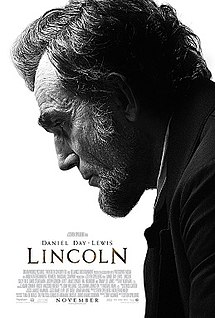One suggestion that seemed particularly relevant this week
was Twelve Kvetchy Men. Not because we’ve probably been
spending a lot of time with family (and our own, lovable kvetchy men) but
because this week’s Torah portion rounds out the story of exactly 12 kvetchy
men: Joseph and his 11 brothers. Kvetchy is an understatement, though. Over the course of their story, we have
learned that these 12 brothers can be rash, jealous, deceptive and unforgiving. They take up many pages of Genesis in a
long saga of vicious behavior…culminating in them plotting to kill their
brother Joseph. Only after this
terrible episode and then years of maturation, the brothers are finally able to
reconcile.
They live together peacefully, we think, in Egypt for about
17 years until their father Jacob grows ill and lies on his deathbed. The brothers gather around to hear
Jacob’s final speech. It’s quite a moment. Imagine them huddled close. Think of how far they have come from
flinging Joseph deep into a pit to die to now standing side by side in brotherly
solidarity. As one group they go
to bury Jacob, giving him his last honor.
But then a curious thing happens on the way back from
burying Jacob. After those 17
years of solidarity and brotherly love, Torah says, “Now
Joseph's brothers saw that their father had died, and they said, "Perhaps
Joseph will hate us and return to us all the evil that we did to
him." The brothers send an
intermediary to remind Joseph that Jacob commanded that he forgive his brothers
for what they did all those years ago.
The problem? Torah has no
record that Jacob ever said that.
Are the brothers back to their old
tricks? Was there never really a
peace between them?
The rabbis take this up this problem
in the midrash[1]. They ask: What did the brothers see after the funeral
that frightened them so much? The
rabbis answer: As they were returning from the burial of their father, the
brothers saw Joseph go to the pit into which they had hurled him, in order to
bless it. He blessed the pit with
the benediction: “Blessed be the place where God performed a miracle for me,”
just as any man is required to pronounce a blessing at the place where a
miracle had been performed on his behalf.
[The brothers stood off at a distance, though, and did not hear the
blessing.] When they beheld him at the pit, they cried out: “Now that our
father is dead, Joseph will hate us and will fully requite us for all the evil
which we did unto him.”
One misinterpreted action is enough for the brothers to
question years of living peacefully together.
The uncertainty leads the brothers to do two things. First, they do not approach Joseph
directly – they speak to him through an intermediary. Second, they lie – putting words into Jacob’s mouth. But the rabbis ask: can we really blame
them? They teach: “[the brothers’] statement is introduced to teach us the
importance of peace. The Holy One,
Blessed be God, wrote these words in the Torah for the sake of peace alone.”
It is almost as if the rabbis are saying “the ends justify
the means.” Sometimes moving on,
or simply finding a productive way forward is much more important.
At the end of 2012, there are many complicated feelings
still in the air. In some respects
it was an inspiring year. The Olympics brought the world together; the Giants
won the Superbowl. It was also a
very difficult year, with many issues still unresolved. Civil war in Syria, the looming “fiscal
cliff,” rebuilding after the hurricane, and the debate around gun control
gearing up as we still mourn Newtown. Not to mention all the things we have
each experienced personally.
We’re going into 2013 with this complicated desire to just
shake off the difficult parts of 2012 but also with the aspiration to address
these most pressing needs in our personal lives and in our local and global
communities.
This week, Torah speaks to this uncertainty and our
conflicted feelings. It asks the best way to move forward when the pain and
mistrust runs deep. We could read
the midrash to say that we should bluff our way into 2013, doing whatever
necessary in the name of resolution, but I think there is more than that.
It teaches the importance of compromising. It encourages us
to seek help when we cannot find the words or the courage to face the conflict
in our lives. It tells us that the path to peace is not a straightforward one.
That even when we think we have found resolution, there is still the natural
potential for self-doubt or backsteps.
To go back to the #IfTheMovieWasJewish meme, Mark and I
recently saw the movie Lincoln. Given this week’s Torah portion, one
part felt very Jewish. President Lincoln is speaking to Thaddeus Stevens, a man
with very noble aims. Stevens’ feelings: your principles should drive you
forward, no matter what. Lincoln
counters with a more practical but powerful metaphor. He compares noble aims to
true north on a surveyor's compass. True north is essential, he tells Stevens,
but you also have to navigate "the swamps and deserts and chasms along the
way.” If you can't do that, he asks, "what's the good of knowing true
north?"
Trudging into 2013, I believe we’re pointed north. We’re
girded with the right values. Our challenge is to not be blinded or guided
completely by principle, though.
We’ll only successfully move forward if we acknowledge the muck and mire
that stands before us. If we
navigate the politics, the complicated feelings, the fact that our past does
remain with us, then we can successfully traverse the difficult issues –
hopefully reaching that most principled peace at journey’s end. Ken yehi ratzon.




No comments:
Post a Comment